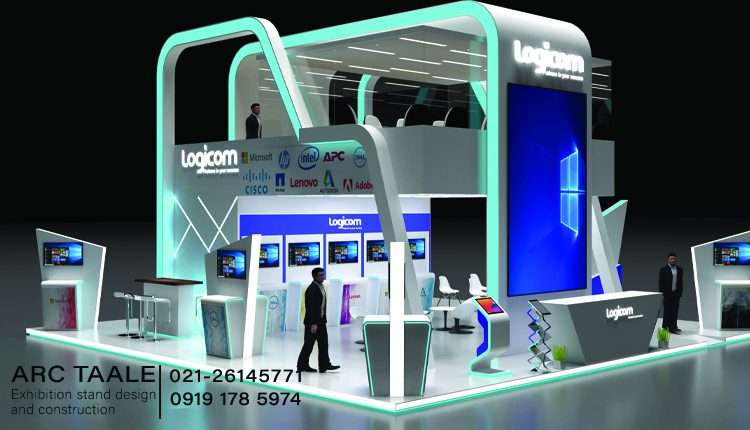Holding exhibitions in Spain offers a captivating experience that blends history, art, and cultural diversity. With a rich and vibrant artistic heritage, Spain boasts an impressive array of museums, galleries, and exhibition spaces that cater to a wide range of interests.
Tips and Steps for Holding exhibitions in Spain
Holding exhibitions in Spain requires careful planning, attention to detail, and a deep understanding of the local market. Here are essential tips and steps to ensure a seamless and impactful exhibition experience in Spain
Understand the Local Market
Conduct thorough market research to understand Spain’s cultural nuances, consumer preferences, and business practices. Tailor your exhibition offerings and marketing strategies to align with the local market demands.
Choose the Right Venue
Select a suitable venue based on your target audience, event size, and budget. Spain offers a range of modern exhibition centers in cities like Madrid, Barcelona, and Valencia. Consider factors such as accessibility, facilities, and ambiance when choosing the venue.
Comply with Regulations
Familiarize yourself with Spanish regulations governing exhibitions, including permits, safety standards, and tax requirements. Ensure compliance to avoid legal complications and fines.
Develop a Comprehensive Marketing Plan
Craft a robust marketing plan that includes digital marketing, social media campaigns, email newsletters, and collaborations with local influencers. Engage with potential attendees and exhibitors well in advance to generate buzz and anticipation.
Create Engaging Exhibits
Design visually appealing and interactive exhibits that capture attendees’ attention. Incorporate elements of Spanish culture and artistry to create a memorable and immersive experience. Engage attendees with product demonstrations, workshops, and live presentations.
Offer Multilingual Support
Spain is a diverse country with multiple official languages. Provide multilingual support, including event materials, signage, and staff proficient in languages such as Spanish, Catalan, and Basque, to cater to a broader audience.
Focus on Networking Opportunities
Facilitate networking among attendees, exhibitors, and industry professionals. Organize networking events, business matchmaking sessions, and seminars to encourage meaningful interactions and collaborations.
By following these tips and steps, event organizers can create a vibrant and successful exhibition in Spain. Understanding the local market, respecting cultural diversity, and offering engaging experiences are key to making a lasting impact on attendees and participants.
Suggested article: Holding exhibitions in Italy
Benefits of Holding Exhibitions in Spain
Holding exhibitions in Spain offers a multitude of benefits, making it a strategic choice for businesses and organizations seeking to expand their reach and make a significant impact. Here are the key advantages of organizing exhibitions in Spain
Access to a Vibrant Economy
Spain boasts a robust and diverse economy, making it an attractive market for businesses. Holding exhibitions here provides access to a large consumer base, fostering potential collaborations and sales opportunities.
Strategic Geographic Location
Spain’s strategic location at the crossroads of Europe, Africa, and the Americas facilitates international participation. Exhibitions in Spain serve as a gateway to both European and global markets, attracting diverse attendees and exhibitors.
Tourism and Cultural Appeal
Spain is a popular tourist destination known for its rich culture, art, cuisine, and historical landmarks. Exhibitors benefit from the country’s tourism appeal, attracting not only local attendees but also international visitors keen on exploring Spain’s offerings.
Technology Hub
Spain is a hub for innovation, technology, and research. Exhibitions in sectors like technology, renewable energy, and healthcare allow businesses to showcase their cutting-edge products and services to an audience that appreciates innovation.
Collaboration Opportunities
Spain hosts numerous international exhibitions and trade fairs, creating ample networking opportunities. Exhibitors can forge collaborations, partnerships, and distribution agreements, enhancing their market presence and industry connections.
Cultural Diversity
Spain’s cultural diversity and multilingual population foster an inclusive environment for international exhibitors. Spaniards are generally proficient in English and other languages, easing communication and collaboration with attendees from various backgrounds.
the benefits of holding exhibitions in Spain extend beyond business transactions, offering a holistic experience that combines economic opportunities, cultural enrichment, and valuable industry connections. Exhibitors can leverage Spain’s dynamic market, innovation landscape, and warm hospitality to create impactful and memorable exhibition events.
The Best Places for Holding Exhibitions in Spain
Spain, renowned for its diverse culture, rich history, and vibrant economy, offers a plethora of top-notch venues ideal for hosting exhibitions. These venues, strategically located in major cities, provide exceptional facilities and ambiance for a successful event experience. Here are some of the best places for holding exhibitions in Spain
Fira Barcelona
Fira Barcelona is one of Europe’s leading exhibition and conference venues, comprising two main sites Montjuïc and Gran Via. Located in Barcelona, Fira Barcelona hosts a wide range of international exhibitions and trade shows. Its modern infrastructure, accessibility, and extensive exhibition space make it a preferred choice for organizers.
IFEMA – Feria de Madrid
IFEMA, situated in Madrid, is one of Spain’s largest exhibition complexes. With state-of-the-art facilities, versatile event spaces, and excellent connectivity, IFEMA hosts diverse exhibitions, trade fairs, and conventions. Its strategic location in the capital city attracts a global audience and exhibitors from various industries.
Feria Valencia
Feria Valencia is a prominent exhibition center located in Valencia. Known for its versatility and spacious halls, Feria Valencia hosts a variety of exhibitions, ranging from automotive and technology to fashion and agriculture. Its modern facilities and experienced staff contribute to successful event outcomes.
These venues represent just a selection of the exceptional places available for holding exhibitions in Spain. Each location offers its unique advantages, ensuring organizers can choose a venue that aligns with their event goals and provides a memorable experience for attendees and participants.
Costs of Holding Exhibitions in Spain
Organizing an exhibition in Spain involves careful financial planning to ensure a successful event within budget constraints. Several factors contribute to the costs of holding exhibitions in Spain
Venue Rental
One of the primary expenses is renting the exhibition venue. The cost varies based on the venue’s location, size, facilities, and duration of the event. Premium venues in major cities like Barcelona and Madrid typically have higher rental fees.
Booth and Stand Construction
Designing and constructing exhibition booths and stands for Holding exhibitions in Spain is a significant expense. Costs depend on the design complexity, materials used, and additional features such as lighting and interactive displays. Exhibitors often invest in eye-catching stands to attract attendees.
Marketing and Promotion
Marketing efforts, including online promotion, social media advertising, and printed materials, are essential for attracting attendees and exhibitors. Budget allocation for marketing depends on the scale of the exhibition and the target audience.
Logistics and Transportation
Transporting exhibition materials, displays, and products to and from the venue involves logistical costs. Exhibitors need to budget for shipping, customs clearance, storage, and on-site transportation services.
Staffing and Personnel
Hiring staff for booth management, sales, customer service, and event coordination is necessary. Staffing costs include salaries, travel allowances, accommodation, and meals for the duration of the exhibition.
Utilities and Services
Utilities such as electricity, water, and internet services are essential for exhibitors. Additionally, exhibitors may require additional services like catering, security, cleaning, and technical support, which add to the overall costs.
Insurance and Permits
Exhibition organizers need insurance coverage for liability, property damage, and unforeseen circumstances. Additionally, obtaining permits and licenses from local authorities is crucial, incurring associated costs.
Understanding these costs and planning the budget meticulously is crucial for the success of exhibitions in Spain. Effective financial management ensures that organizers can deliver a seamless and engaging event experience while staying within budgetary constraints.


